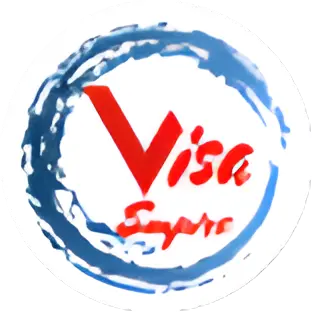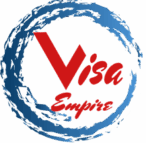Employer Sponsored visa Australia
Free Online Assessment

At Visa Empire, we specialize in helping businesses and skilled professionals navigate the employer sponsored visa Australia process with confidence. With years of expertise in Australian migration law, our team provides step-by-step assistance. Right from selecting the right visa pathway to preparing a compliant application, our migration agents make the entire process hassle-free for you.
Whether you are an employer looking to attract top talent for your Australian operations or a skilled professional aiming to relocate for career growth, we ensure your journey is seamless, efficient, and in line with government requirements.
Understanding Employer Sponsored Visas in Australia
The Australian employer sponsored visa program is designed to allow businesses to hire qualified overseas talent when suitable local candidates are unavailable. This pathway helps address skills shortages in critical industries. It also provides professionals with opportunities to work and often settle permanently in Australia.
Through this program, employers can sponsor eligible overseas workers for temporary or permanent residency visas, depending on the role, skill requirements, and location.
At Visa Empire, we are familiar with all visa subclasses under the employer visa Australia program, enabling us to match you with the most suitable option based on your individual or business needs.
Types of Employer Sponsored Visas in Australia
The employer nomination visa Australia program is divided into several key subclasses, each catering to different requirements and goals.
- Employer Nomination Scheme (ENS 186 Visa)
A permanent residency visa allows employers to nominate overseas workers for approved occupations. This pathway often leads to Australian citizenship, provided all criteria are met.
- Skilled Employer-Sponsored Regional Visa (Subclass 494)
A temporary visa that leads to permanent regional residency after three years. To be eligible, applicants must be sponsored by an employer in regional Australia.
- Temporary Skill Shortage Visa (TSS 482 Visa)
This visa allows employers to fill short-term and medium-term skill gaps by sponsoring overseas workers for up to four years. It is ideal for meeting urgent workforce needs.
- Training Visa
A temporary visa designed to enhance the skills of overseas employees through workplace-based training, valid for up to two years.

Differences Between Temporary and Permanent Employer Sponsored Visas
While both temporary and permanent visas under the Australian skilled migration program offer benefits, they cater to different needs:
- TSS 482 Visa– It is temporary in nature, focused on addressing short-term skill shortages.
- ENS 186 Visa- It offers direct permanent residency.
- English language requirements for ENS 186 are generally higher than for TSS 482.
- Eligibility criteria for TSS 482 can be more restrictive in terms of occupation lists.
- Employer obligations under temporary visas may differ from those for permanent sponsorship.
For applicants who are seeking long-term settlement, the employer nomination scheme in Australia provides a more stable pathway. TSS visas, on the other hand, are ideal for immediate workforce requirements.
Eligibility Criteria for Employer-Sponsored Visa Applicants
In order to qualify for an employer sponsored work visa in Australia, generally applicants must:
- Have an occupation listed on the Skilled Occupation List (MLTSSL, STSOL, or other relevant lists).
- Meet minimum English language proficiency standards (e.g., IELTS, TOEFL) or hold a valid passport from an eligible English-speaking country.
- Possess relevant qualifications and work experience in the nominated role.
- Provide evidence of at least three years of relevant work experience within the last five to ten years.
- Meet health and character requirements.
- Obtain any required registration or licensing for their occupation in Australia.
Skills and Qualification Requirements
Applicants must ensure that their qualifications and experience match the nominated occupation. The requirements for it often include the following:-
- Listed occupation on MLTSSL or STSOL.
- Recent experience relevant to the nominated position.
- Educational qualifications are directly related to the occupation.
- Skills assessments from approved authorities.

Work Experience Necessities
In order to meet the work experience requirements for an employer visa in Australia, applicants should:
- Have at least three years of full-time, relevant work experience within the past decade.
- Ensure recent work history aligns with the nominated occupation.
- Provide proof such as employment references, payslips, contracts, or previous visas.
- Meet any licensing or registration prerequisites.
Language Proficiency Standards
For most Australian employer sponsored visa subclasses, applicants must demonstrate English proficiency through recognized tests such as IELTS or TOEFL.
Exemptions may apply to the following:
- Passport holders from eligible countries such as the UK, USA, Canada, New Zealand, and Ireland.
- Applicants who have completed a degree taught in English.
The Application Process for an Australian Employer Sponsored Visa
Applying for an employer nomination visa in Australia involves multiple steps and legal considerations. Here we present before you a step-by-step guide through which you can understand the entire process.
Step-by-Step Guide
- Determine the right visa subclass based on the applicant’s goals and employer needs.
- The employer applies for sponsorship approval with the Department of Home Affairs.
- Check applicant eligibility against the visa criteria.
- Lodge the nomination and visa application with all supporting documentation.
- Await processing while responding to any requests from immigration authorities.
- Issuance of a Visa decision that leads to a temporary or permanent stay.
At Visa Empire, we handle each step with precision, ensuring compliance and minimizing delays.
Document Checklist for Employer Sponsored Visas Australia
A complete application for an Australian employer sponsored visa may require the following:-
- Skills assessment results.
- English language test scores.
- Proof of qualifications and work history.
- Employer nomination and sponsorship forms.
- Evidence of labour market testing.
- Business registration and financial documentation.
Processing Time and Timelines
Processing times for an employer sponsor visa in Australia vary by subclass:-
- Some temporary visas may be processed in under 12 months.
- Permanent residency visas may take 1–2+ years.
At Visa Empire, we provide realistic timelines and keep you informed at every milestone.
Benefits of the Employer Sponsored Visa Program in Australia
The employer sponsored work visa Australia program offers advantages for both employers and employees:
- Access to global talent to fill critical skill shortages.
- Pathways to permanent residency for in-demand skills.
- Enhanced career opportunities for skilled professionals.
- Greater flexibility in hiring specialized workers.
- Contribution to Australia’s economic growth and innovation.
Common Challenges and Solutions
Even though the employer-sponsored visa Australia program is valuable, applicants and employers may face the following challenges:-
- Navigating Legal and Paperwork Complexities
Visa applications involve strict documentation and regulatory compliance. Visa Empire ensures every form, assessment, and legal requirement is accurately handled.
- Addressing Delays and Application Issues
Processing delays are common due to high global demand. Our visa agents at Visa Empire work proactively with authorities to resolve issues quickly and keep applications on track.
Wrapping Up
The employer sponsored visa Australia program opens valuable pathways for both employers and skilled professionals to achieve their goals. Whether through the employer nomination scheme Australia or the temporary skill shortage visa Australia, the right choice depends on your career objectives and eligibility. With expert guidance from Visa Empire, navigating the Australian employer sponsored visa process becomes smoother, ensuring you maximize your opportunities to work and settle in Australia.
Frequently Asked Questions (FAQs)
The employer-sponsored scheme in Australia allows approved businesses to hire skilled overseas workers for occupations listed on the Skilled Occupation List when no suitable local talent is available. This can be for temporary roles, such as the Temporary Skill Shortage visa Australia (TSS 482), or permanent positions under the Employer Nomination Scheme Australia (ENS 186).
In order to get an employer-sponsored visa for Australia, you must first secure a job offer from an eligible Australian employer willing to sponsor you. The employer must be approved as a standard business sponsor, nominate you for an eligible occupation, and meet labour market testing requirements. You then submit your visa application with supporting documents such as skills assessments, work experience proof, and English test results.
In order to be eligible for a TSS 482 visa in Australia, you must have an occupation on the approved skills list, possess relevant qualifications, and at least two years of work experience in your field, meet English language requirements, and be sponsored by an approved Australian employer. Health, character, and licensing criteria may also apply.
Yes, most applicants for a Temporary Skill Shortage visa in Australia must demonstrate English proficiency through a test such as IELTS, PTE, or TOEFL. However, passport holders from eligible English-speaking countries or those with a degree taught in English may be exempt from this requirement.
The cost of a TSS 482 visa Australia starts from AUD 3,210. Additional costs may include skills assessments, English tests, health checks, and employer sponsorship fees.
Trustindex verifies that the original source of the review is Google. I had an excellent experience with my visa agent. From the beginning, they were professional, knowledgeable, and very supportive throughout the entire process. They explained every step clearly, kept me updated, and made what could have been a stressful process feel smooth and manageable. Thanks to their guidance and attention to detail, my visa was granted successfully. I highly recommend their services to anyone looking for a reliable and trustworthy visa agentPosted onTrustindex verifies that the original source of the review is Google. I had a great experience with Visa Empire for my student visa extension. The whole process was handled very smoothly and professionally. Manvi mam and Rohan sir were extremely helpful, supportive, and patient throughout the entire process. They guided me at every step, answered all my questions clearly, and made sure everything was done on time. I’m really grateful for their support and would highly recommend Visa Empire to anyone looking for reliable and honest visa assistance.Posted onTrustindex verifies that the original source of the review is Google. “I had a great experience with Aditi Sinha for my skill assessment. She was professional, knowledgeable, and very responsive throughout the process. Everything was explained clearly, and my application was handled smoothly and on time. I highly recommend her services to anyone needing reliable migration assistance.”Posted onTrustindex verifies that the original source of the review is Google. Amazing service from Visa Empire! The team is reliable, supportive, and professional. My visa was approved without any issues. Highly recommend!Posted onTrustindex verifies that the original source of the review is Google. I’m very thankful for all the help and service I received from the team. I had great experience throughout the whole process. Everything was explained clearly and felt supportive. Thanks again for ur help- Really appreciated!Posted onTrustindex verifies that the original source of the review is Google. Highly professional & great service. Special thanks to Rohan Sir & Manvi Mam.Posted onTrustindex verifies that the original source of the review is Google. I am extremely satisfied with the services provided by visa empire. From the initial consultation to the final approval of my parents’ tourist visa, everything was handled in a very professional manner. The agent clearly explained the requirements, kept me updated throughout the process, and answered all my questions promptly. Thanks to their expertise, I truly appreciate their support and highly recommend their services.Posted onTrustindex verifies that the original source of the review is Google. I am extremely happy with the excellent service provided by the Visa Empire Team. My 482 visa has been successfully granted, and the entire process was handled very professionally from start to finish. They were always clear, supportive, and patient in answering all my questions. Their guidance made the whole visa process smooth and stress-free. I truly appreciate their knowledge, honesty, and commitment to helping their clients. I highly recommend Visa Empire Team Neet and Navneet their services to anyone looking for reliable and trustworthy migration advice. Thank you once again for your outstanding support. Gurpreet Singh

